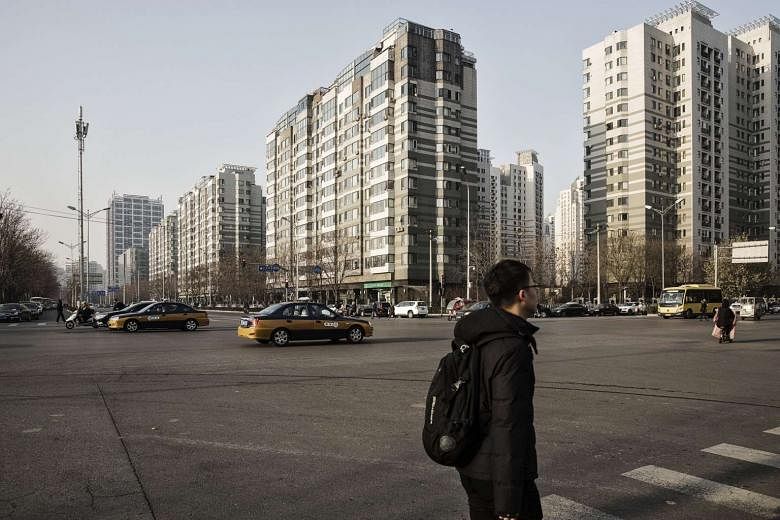China will prioritise stability in its economy next year and the booming property market has been singled out as a key area to tackle.
The government does not want to see the property bubble burst, resulting in a hard landing for the economy, especially in a year where the ruling Chinese Communist Party (CCP) will see a top-level reshuffle, analysts told The Sunday Times.
Controlling the property market is key to ensuring stability, they say.
This was the most concrete measure from a three-day meeting of top Chinese leaders to set the economic agenda for next year, which wrapped up last Friday.
"We must ensure that houses are for people to live in, and not for people to speculate," said the official Xinhua news agency, quoting a statement released at the close of the Central Economic Work Conference, a closed-door gathering of members of the CCP's Central Committee as well as top government and provincial leaders.

"The main highlight this time is the focus on the property market, signalling a very important and fundamental directional change in policy," said economist Yuan Gangming of Tsinghua University.
"This is the first time the property sector is mentioned in detail at a meeting that deals with macroeconomic policies," he added.
The statement said the government will use a mix of land, financial, taxation, investment and legislative measures to establish "a market-oriented and long-term mechanism" for the property market.
This will "curb property bubbles, and also prevent erratic fluctuations (of prices)", it said.
The government will also impose strict control on loans flowing into speculative property investment as well as free up more land for residential housing in cities where property prices are rising rapidly.
The booming property market has been one of the key drivers of growth in China this year. The economy consistently grew by 6.7 per cent for the first three quarters of the year and looks on target to grow at 6.5 per cent to 7 per cent this year.
"Cooling the property market could put a damper on growth for next year, but it is a necessary move to introduce more stability in the economy," said Dr Yuan.
Professor Cao Heping of Peking University's School of Economics said the statement calls for growth that could benefit most people. "Controlling housing prices is a specific area that is especially important in achieving this outcome," he said.
Analysts say this could also mean the roll-out of a nationwide property tax, a hugely unpopular fiscal plan that stalled at the pilot stage in the cities of Shanghai and Chongqing.
"Property tax is something the government must introduce in order to curb speculation," said analyst Hu Xingdou.
"Without property taxes, people will buy multiple properties. And that's why you see a majority of the houses being left empty," said the economics professor at Beijing Institute of Technology.
The statement, which is about 5,000 words long, released last Friday, also called for supply-side structural reforms, including cutting overcapacity, deleveraging and reducing housing stock, but analysts say the crux of these structural problems lies with the highly inefficient state-owned sector.
"Unfortunately, I don't see a big enough resolve from the government," said Professor Hu.
The statement's mention of taking substantial steps in "mixed-ownership" reform in industries such as electricity, railway and telecommunications is largely the same as what has been said before, he said.
"Clearly, advancing reforms will take a back seat next year, where the emphasis is on stable growth," he added.

